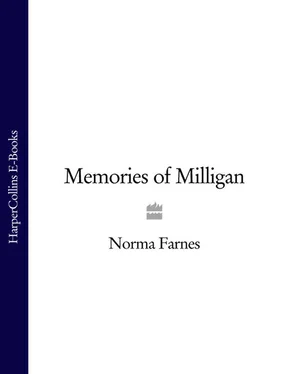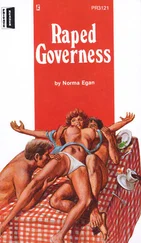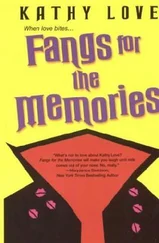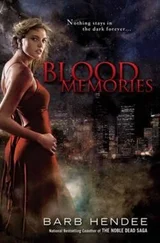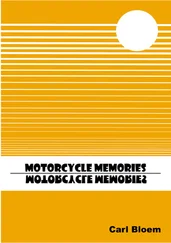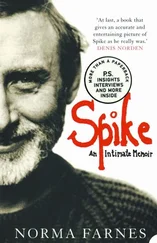On another occasion he came into my room and he was stark naked. He was carrying a script and he put the script in front of me and said, ‘What do you think of that?’ and I read it. ‘Well, that line can come out there,’ and I made certain criticisms. ‘The end is fine like that.’ Then Spike said, ‘You bastard! Here I am bollock-naked and you haven’t mentioned it.’ ‘Yes, but you asked me to read the script, not examine you.’
NORMA:Eric explained that Spike was ‘driven by his whims’ and could be unreliable. He remembered once Spike was in the car when his first wife (he thinks it was his first wife, not the one he eventually ended up with) was driving and they were having quite a row. They were driving in the Bayswater Road and Spike had had enough, opened the door and got out. They were doing forty miles an hour. That could hardly be called the action of a responsible person. Eric also remembered one time when Spike was due to appear on stage.
ERIC:I think with Peter Sellers and Harry Secombe. Something upset him and he locked himself into his dressing room. They couldn’t get him out and he wouldn’t go back on stage. This again doesn’t stoke up a CV of reliability. Peter and Harry had to go on to fill in. It’s very difficult to tell an audience that Spike will not be appearing as he’s locked himself in his dressing room, because that would take away some of the steam.
Although he was unreliable, he was trustworthy. And I say this, because if you left a thousand pounds on your desk and he came in, it would still be there when he left. And also you could leave your children with him knowing he would enthral them and entertain them with his stories and poems. Which reminds me of a hilarious Christmas Eve. His wife had left him and rather than spend a lonely festive season we invited him to spend Christmas with us in Weybridge, which he accepted because he had no intention of cooking the turkey. The four children, two of ours, Kathy and Susan, and his two, Laura and Sean, got on like a house on fire. They were all the same age, five or six years old.
Spike was the sole organiser. It was pitch black and my wife Edith had given him empty jam jars that he filled with candles. He dotted them all around the lawn, those flickering little lights. He told the children they were fairies, then speaking through a tube from the Hoover, through a little gap in the window behind the curtains, he said, ‘Ho! Ho! Ho! This is Father Christmas speaking. Now where exactly are you staying tonight?’ and they were all whispering they’d heard Father Christmas himself and he was coming to see them. Spike’s energy was boundless. He was creating things for the children and I realised he’d hit the bullseye. I envied him this because I was less attentive to my brood, I knew Edith would bring them up properly. The children loved it. It was a very happy Christmas Eve.
We saw the children into bed and filled their stockings. As usual on the Christmas morning Edith and I, and the four children, were up early and we were all unwrapping our presents. I had lit the fire so it was cosy, with a big cardboard box to put the wrapping in, but where was Spike? What had happened? Had he left? We went up and searched all the rooms. He wasn’t anywhere. Perhaps he’d been kidnapped, although I didn’t think he was worth a lot in those days. About 11.30 in the morning a rejuvenated Spike came into the room. He had locked himself in the attic and spent the night there so he wouldn’t be disturbed. I thought he had missed the best time of a child’s life, when they are opening their presents. It was rather typical of the man.
NORMA:One of the qualities Eric admired in Spike was his extraordinary generosity.
ERIC:He would give you his last halfpenny. If he saw what he thought was a cause he would probably mortgage his house in order to swell the charity coffers. He was a very generous man. If he saw a man limping in the street I would know he’d buy him a pair of shoes. He was impulsive – he lived on impulse half his life. Money didn’t mean anything to him. It ran through his fingers like lukewarm water.
NORMA:Eric spoke of Spike’s love of jazz and the wonderful times he spent at Ronnie Scott’s jazz club. It was a real home from home and he used to go there three or four nights a week. For both Spike and Eric, Ronnie was a hero.
ERIC:Spike was such a friend to Ronnie, and then came startling news in 1983 that Spike was getting married again and was about to move to the wilds of the country, temporarily at first in Ticehurst, then in Rye, East Sussex. Now, it is my belief that the Thames separates one part of London from the other and never the twain shall meet, and on this occasion Spike was in a foreign country miles out, so that his new-found wife had cut him off from all that was familiar and all that he loved, including his beloved Ronnie’s. And sadly I regret I never went to see him for the simple reason I didn’t have satnav or enough petrol to get there, but that’s where he ended his days. For me it was like I’d lost a brother.
NORMA:Spike once said to me, many years ago, ‘Eric had a sister in Hattie and I’ve got a brother in Eric.’ As Eric prepared to leave (to film an episode of Poirot with David Suchet, one of his favourite actors, he was so looking forward to working with him), I asked him if he had heard this quote. Such a look of sadness came over his face.
ERIC:Do you remember the story I told you at the beginning about Spike knocking on the funeral director’s door, shouting ‘Shop!’? I was lucky. It took fifty years for them to answer. I used to think, ‘When our time comes I hope we go together. I would hate to live in a world where he wasn’t.’
On 26 February 2002, one of the jewels fell from the comedy crown. It was the day Spike Milligan, with whom I’d shared an office for over fifty years, passed away. I use the phrase ‘passed away’ for that is exactly what he did. Spike will never die in the hearts of millions of us who were uplifted by his works. For me and you, Norma, he still prowls the building in unguarded moments. He will always be welcome. As Hattie was my sister, so he was my brother. Rest in peace, Spike, and say hello to Peter and Harry.
Ray Galton and Alan Simpson
On my way to meet Ray and Alan, I reflected on the early days at Orme Court. The building pulsated with talent: Spike, Eric Sykes, Johnny Speight, Terry Nation, Frankie Howerd, Tony Hancock and his two scriptwriters – Ray and Alan – who played such an important part in making him the nation’s favourite comedian. At six foot four, Alan topped Ray by an inch. Not much else separated them.
The year was 1966, only a few months into my induction, and Milligan was having what I later termed a mini-tantrum. I hadn’t quite got used to ‘the wild Milligan’, in his own words. He had been working all day on a television script. After several re-writes and accompanying outbursts, heard by everyone in the building, the day’s work was thrown into the wastepaper basket. I heard him shout, ‘I’m gone. I’ve binned it. I didn’t realise I could be that unfunny.’ Over the years to come I must have heard that a thousand times.
The door banged as he charged out of No. 9. I retrieved his ‘unfunny’ efforts, as I would do many times, and tried to make sense of what he had written. It was late and I thought I was alone in the building when the door opened. Alan, who had obviously heard the outbursts, poked his head round the door. ‘Why don’t you go and work in a bank?’ After the tension of the day I burst out laughing. It was pure Hancock from The Blood Donor – that famous line, ‘I’ll do something else. I’ll be a traffic warden.’
Читать дальше
